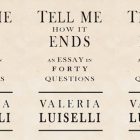Review: THE AFTER PARTY by Jane Prikryl

The After Party
Jana Prikryl
Tim Duggan Books, June 2016
112 pp; $15
Buy: paperback
Jana Prikryl’s The After Party is one of those rare debut volumes, like Stevens’s Harmonium, in which we meet an already fully-inhabited voice. In some such cases, much unforeseeable development may be in store, as with Graham’s Hybrids of Plants and Ghosts; sometimes, as with Delmore Schwartz’s In Dreams Begin Responsibilities, the debut may be almost the whole story. Predictions are futile. A reader does feel, though, that a new town has appeared on the map.
Prikryl is interested in form (the book has sonnets, near-sonnets, and rhyme), but the forms often surprise: the monorhyme of “Benvenuto Tisi’s Vestal Virgin Claudia Quinta Pulling a Boat with the Statue of Cybele,” the variations on the word “hope” that play out in four short poems interspersed throughout the volume. “Inverted Poem for the Fluoride Ladies of Pleasant Valley School” may be read both top-to-bottom and bottom-to-top. Gimmicky? Perhaps, but when the description “They stand erect, side by side, and shine / like knowledge” turns out to fit both public health workers in lab coats and teeth, a surreal insight has been attained.
Like the fluoride ladies, the speakers in the poems take their responsibilities seriously, even when facing unreasonable requests. In Tisi’s painting, Claudia Quinta has to haul a large boat to shore by herself while a crowd watches. In “Ontario Gothic,” the speaker is asked to steer a car from the back seat: “Why he wanted me to take the wheel / I was too busy not getting us killed / to unravel […].” In “A Package Tour,” the dutiful speaker (“it’s important to me / to do some work of significance / or do my work conscientiously”) organizes a trip for her eight Czech great-grandmothers, but they are puzzled at the trip’s purpose (“Why did you show us all these things? / What do you bring besides information?”), and the speaker finally confesses the whole thing may have been a bid for the reader’s approval, “As if this could win me some advantage, / as if it might incline you to be generous.” The book’s most telling moments are when the voice shows the strain of its forbearance, when “argument […] drops its mask / and spits in every dinner plate” (“Ars Poetica”).
Prikryl shows an affinity for the labyrinthine syntax of Henry James (e.g., the final stanza of “Argus, or Fear of Flying”), and the long poem that concludes the book, “Thirty Thousand Islands,” could be a reduced-to-its-essence Jamesian novel. Mr. Dialect lives (or summers) in the archipelago of Ontario’s Georgian Bay, immersed in its geology and history but at some remove from his fellow humans. Sometimes in first person (“I have a perpetual feeling / a lake ought not to be this size”), sometimes in third (“Mr. Dialect conserves / like a master tactician / the best of his Parisian shirts”), the poem gives us a man waiting for the beast in the jungle—or the pines—to spring. In the end, there are only pines.



